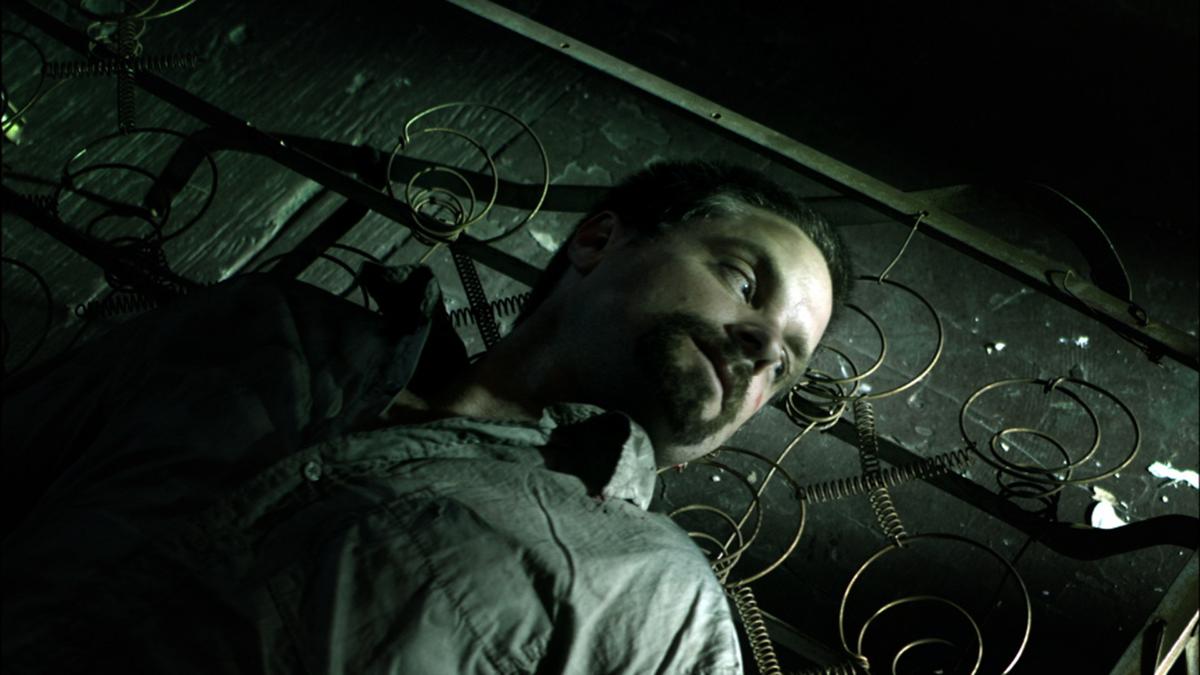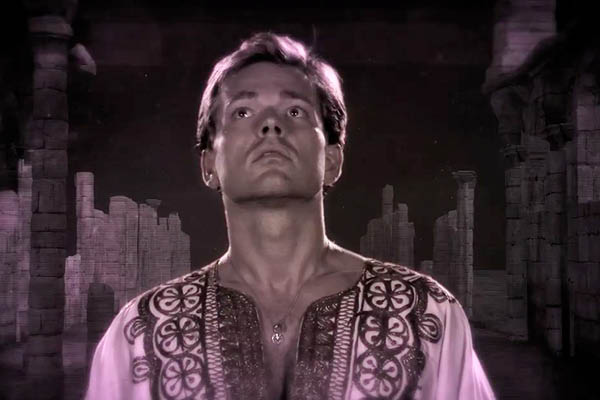This weekend I traveled to the Museum of the Moving Image to see Radio Free Albemuth, a film adaptation of the same-titled book by science fiction author Philip K. Dick. Director John Alan Simon was present and generously gave the audience time for questions afterward, describing his own personal history with P.K.D.’s work and his choice to adapt Radio Free Albemuth.
The Film
The movie boasts a star cast: Boardwalk Empire’s Shea Wigham (playing “Phil”), The Walking Dead’s Scott Wilson (as “President Freemont”), History Channel’s Vikings co-star Katheryn Winnick (as “Rachel Brady”), Jonathan Scarfe (star “Nicholas Brady”) and musician Alanis Morisette (as “Sylvia”).
Radio Free Albemuth is set between Berkeley and Los Angeles in an alternative, dystopian timeline. The Cold War is going strong and the U.S. is a police state under the control of President Freemont. Much of the world looks like a cross between the 1970’s and our time: fancy cars and modern buildings, but not much in the way of tech gadgets like cell phones, or even computers. “Phil” (who is really a projection of Philip K. Dick into both the novel and the movie) uses a typewriter and listens to music on a record player.
I especially enjoyed Wigham’s cast as P.K.D. and felt he did a convincing job. Director John Alan Simon mentioned during the Q&A that the character “Phil” was how Dick imagined himself to be: a cool, solemn writer who was suave with the ladies. Wigham pulled that off effortlessly.
The story begins when an alien satellite, VALIS, zaps Nicholas Brady in his sleep with strange dreams containing messages from a distant star system. Brady awakens to a spectral apparition of himself standing over his bed. His wife, Rachel, awakens to see it and screams. Although Rachel dismisses what happened the next day, Nicholas can’t shake it off, and opens up to his friend the science fiction writer, Phil, about what it all means.
Many fans of P.K.D. know that Radio Free Albemuth was actually published posthumously, adapted from real experiences that Dick encountered between February and March of 1974. Declined by his publishers, Dick sent away Radio Free Albemuth to a friend for safe keeping while he published another version of the book as VALIS (Reality Sandwich did a ReRead of this book a few months ago). Portions of Albemuth were adapted into VALIS.
The rest of the film introduces new characters, like Sylvia, and the project of the extra-terrestrial satellite, VALIS, which stands for “Vast Active Living Intelligence System,” to save human kind, reconnecting us with our long-lost origins in the stars — and perhaps higher dimensions.
Brady follows his dream’s instructions (as well as occasional moments where he is “zapped” by a pink light, also something that Dick claims happened to him) and moves form Berkeley to LA to become a successful producer in the music industry, using his position as a media mogul to create propaganda against President Freemont and reveal his evil regime.
The rest, I suppose, I can’t say without spoiling the movie. But, for Philip K. Dick readers and fans who are wondering how well this movie adapts the book, I can’t tell you. I’ve recently read VALIS as part of the RS ReRead series, but I couldn’t pass up the chance to see Radio Free Albemuth on the screen and talk with the director, even though I haven’t yet read the book. What I can say, as a Philip K. Dick reader, is that the movie has the same… voice to it, as Dick’s. That is, it carries a certain weight, or tone, that I’ve only ever read in Dick’s novels (and don’t worry, the mind-bending classic twists of Dick’s novels are definitely present. You’re in for a few treats). I believe that’s saying something about the writer and director, John Alan Simon, in how well he conveyed Philip K. Dick’s work. As John mentioned during the Q&A, he is a personal fan of Dick’s work, having read all his novels and acquired the rights additionally to Flow My Tears the Policeman Said, and VALIS.
The “tone” that I’m speaking of makes Philip K. Dick one of the most unique writers I’ve encountered. There is heaviness to it that weighs on the heart. John Alan Simon noted that Dick’s stories are about two things, primarily. The first is: What is Real? The second is: What makes a Person? Radio Free Albemuth, as a film, embodied these questions naturally. Empathy in the struggle for freedom in a world that denies us our transcendent potential. That was the film’s core conveyance, expressed powerfully. You didn’t need to be familiar with Philip K. Dick to recognize that.
Hats off to the director and writer, John Alan Simon, the cast and all the crew for their faithful and timely adaptation of Radio Free Albemuth. Catch it in theaters if you can, or check out their homepage for its digital release. Check out the trailer here.
Also of interest to R.S. Readers might be our interview with consciousness culture author Erik Davis on Philip K. Dick and the “High Weirdness” of the novel, VALIS.

















